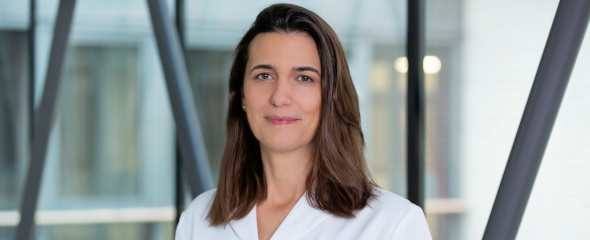Over the next three years, the German Federal Ministry of Education and Research will provide funding for the establishment of a network of German female researchers of infectious diseases with its Innovative Women in Focus program. RWTH Professor Gabriele Pradel from the Department of Cellular and Applied Infection Biology at the Institute of Biology 2 is responsible for the Infect-Net project. The founding team includes her colleagues Petra Dersch (University of Münster), Melanie Brinkmann (HZI, Technische Universität Braunschweig), Sandra Ciesek (Universitätsklinikum Frankfurt), and Iris Bruchhaus (Bernhard Nocht Institute for Tropical Medicine, Hamburg). A total of 30 infectious diseases researchers have already joined Infect-Net.
The women scientists not only want to form a national network, but also strengthen it further by founding an association. They aim to increase the visibility of women researchers of infectious diseases and thus strengthen their position as experts in a scientific dialog that is truly reflective of gender diversity. Infect-Net is particularly seeking direct dialogue on the topic of proactive infection education with society, business, and politics.
The measures include public relations work, the development of a database of female experts, network meetings, workshops, lecture series, and mentoring programs. In addition, the team is planning to establish a "Forum Infection" communication platform, which will serve to have current infection rates and trends evaluated by representatives of science, industry, and society. Infect-Net also aims to identify suitable role models for women early-career researchers and thus encourage them with their career paths.
The association's founding targets female scientists working at German universities or public research institutions who represent the research field of human infectious diseases. They work in the disciplines of medical microbiology, infectious diseases, and epidemiology and primarily represent virologists, bacteriologists, parasitologists, and immunologists.
